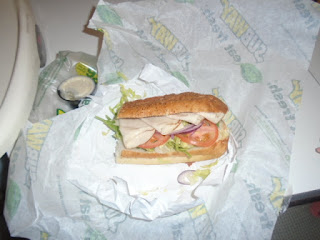Now thank we all our God, with heart and hands and voices,
Who wondrous things has done, in Whom this world rejoices;
Who from our mothers’ arms has blessed us on our way
With countless gifts of love, and still is ours today.
O may this bounteous God through all our life be near us,
With ever joyful hearts and blessèd peace to cheer us;
And keep us in His grace, and guide us when perplexed;
And free us from all ills, in this world and the next!
All praise and thanks to God the Father now be given;
The Son and Him Who reigns with Them in highest Heaven;
The one eternal God, Whom earth and Heaven adore;
For thus it was, is now, and shall be evermore.
This was written during the last of the great religious wars of Europe, the Thirty Years War, lasting from 1618-1648. It was described as "one of the most cruel and destructive" of history. Germany, the main battleground between warring Catholics and Protestants from various countries of Central Europe, suffered misery beyond description with the German population decimated from 16 million to 6 million.
Under leadership of Luther, Calvin, and Menno Simons and others, the revolt of those called "Protestants" against the Catholic Church had resulted in formation of new churches--Lutheran, Calvinist, Anabaptist and the Church of England. In the early days of Reformation in Germany, these churches were able to survive only by the protection of German princes who identified with the reformers. That resulted in the German princes being attacked by the armies of surrounding still Catholic provinces of Germany and still Catholic countries like France and Sweden. While the war might be seen as war of the growing independent provinces against the central authority of the Holy Roman Empires, it began as, and remained, a religious war.
Rinkart was the son of a poor coppersmith. At the outset, Rinkart was called to pastor a church in the walled city of Eilenberg where many fugitives took refuge. The Swedish army surrounded the city; 800 homes were destroyed. He faithfully ministered to the sick and dying of that city for the full period of the war, enduring the famines, plagues and armies that swept through the city. During the dreadful plague of 1637, he would often conduct as many as 40 funerals a day and ultimately over 4,500, including that of his wife. The pestilence was followed by a famine so extreme that 30-40 persons might be seen fighting in the streets for a dead cat or crow. Rinkart, with the burgomaster and one other citizen did what could be done to organize assistance and gave away everything but the barest rations for this own family so that his door was surrounded by a crowd of starving poor people who found it their only refuge. So great were his own losses and charities that he had the utmost difficulty in finding bread and clothes for his children and he was forced to mortgage his future income for several years. Such was the tremendous strain on the pastors who had to conduct dozens of funerals daily. Finally, the pastors succumbed too and Rinkart was the only one left.
When the Swedes demanded a huge ransom (the equivalent of $30,000 dollars), he left the safety of the walls to plead for mercy. The Swedish commander, impressed by his faith and courage, lowered his demand to 2,000 florins. Soon afterward the Thirty Years War ended and Rinkart wrote this hymn for a grand celebration service. Rinkart wrote a "table grace" that was sung as a national thanksgiving at the end of the war. It became a hymn of praise sung across the centuries throughout the world, aided in popularity by its English translation.
His official career for Christ coincided with the duration of the war itself. He died one year after the war ended. But, Rinkart had learned to smile through suffering. Out of his calamities he breathed an unbounded spirit of faith in God and of readiness to give thanks. It is a testament to his faith that, after such misery, he was able to write a hymn of abiding trust and gratitude toward God. One line of the first stanza says, "Now thank we all our God....who wondrous things hath done." What is so wondrous about a war? He knew that wars are the results of uncontrolled passions and desires in the hearts of people. But, he was praising God for the wondrous things that God himself had wrought. He was praising God for the common and spiritual graces he saw clearly through the suffering and heartache of his work around his church.
"Rinkart was living proof that, no matter what the external conditions, contracting the disease of hardness of the heart is not inevitable."













































